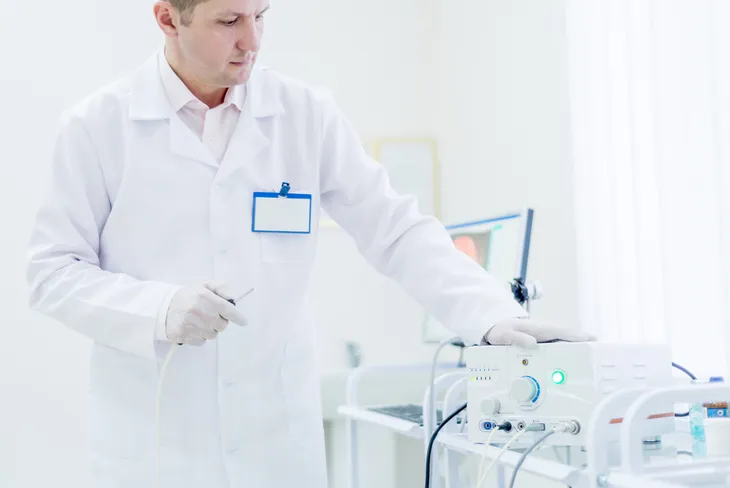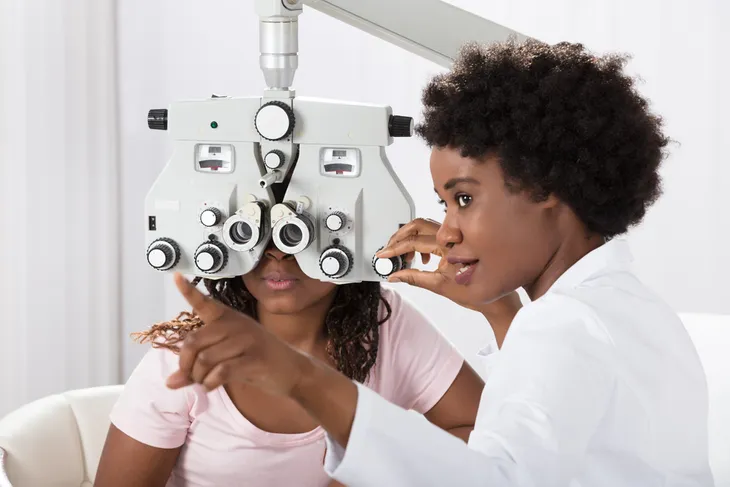According to the Kaiser Family Foundation, 45-percent of adults 18 to 29 years old and 28-percent of 30 to 40 year olds don’t have a primary doctor. That is too many adults that don’t have a consistent care provider to contact when they are sick or injured.
If you lack health benefits or insurance it’s no wonder you skip yearly screenings with GPs, dentists, optometrists, and others. However, making time for the following health professionals can be the proactive difference between a minor health issue and a major condition or life-threatening disease…
Gynecologist
Even if you have general practitioner ladies, you should still see a gynecologist annually if you are over the age of 18. If you need a referral for a gynecologist for female-related stuff—reproductive issues, STDs, pregnancy—ask your GP for a referral.
Pelvic exams and pap tests should be performed every 3 to 5-years for women age 25 to 29-years. While those 30 to 65 should have an exam every 5-years, says the National Cancer Institute.
Proctologist
Has Movemember (November is prostate cancer awareness month) taught us nothing? All men over the age of 50-years old should see a proctologist for a prostate cancer screening every 10-years. However, that’s only if your risk of colon-related conditions is low.
If your risk factor is high, your doctor may want more frequent screenings, including yearly appointments for fecal occult blood tests and appointments every 5-years for double-contrast barium enemas (colon x-rays).
Dermatologist
If you have a skin tag or wish to have an exfoliating wrinkle treatment then you can make an appointment with your dermatologist at your leisure. However, an appointment for a questionable mole shouldn’t be put off. Even though most typical moles will never turn into skin cancer, individuals with more than 50 common-type moles carry a higher risk of developing melanoma (a type of skin cancer), according to the National Cancer Institute.
If a mole changes in shape, size, color, texture, height, or becomes uneven, scaly, lumpy, itchy, or bloody/oozy, then you should book an appointment with a dermatologist immediately or get a referral from your family physician.
Dentist
If you’re lucky enough to have good medical benefits at work (including dental) a cleaning and check up every six months may be in the financial cards. However, if you don’t you may be apt to put off yearly cleanings and x-rays.
The Canadian Dental Association cautions smokers, those with poor diets, and pregnant women to refrain from skipping yearly check ups. Especially expectant moms, of which 22-percent are prone to periodontal gum disease. Studies from the Birmingham School of Dentistry at the University of Alabama, found that yearly dental cleanings and screenings for the disease can prevent premature deliveries, as well as increased risk of cerebral palsy, and visual problems in newborns.
Optometrist
Another medical appointment that’s often put off due to lack of benefits coverage is an eye exam. The optometrist should be on your radar every 2 to 3-years, more often if it’s booked for a child (annually). Adults over 40 should have their vision checked every second year if they wear prescription eyeglasses or contact lenses.
Further, if you notice sudden vision changes, optometrists can virtually detect problems with your hearts, arteries, brain, and nerves via the eyes. Don’t put off an optometrist appointment if your vision changes for no reason—the eyes are often the windows to your health.
Family Doctor
I know that your family physician is the last person you want to see if you’re sick or suffering from an embarrassing health issue. However, your GP should be the first appointment you make if your health is in question—as far as sinus congestion, fever, joint or muscle pain, odd lump or mass, sleep difficulties, changes in diet or weight, and so much more.
Even if you feel fine, those annual comprehensive medical check-ups, screenings, and routines tests are meant to preventatively support your health and well being, and if you’re in good health, your doctor may even be alright with seeing you less often.
Mammography Technologist
While mammograms don’t prevent breast cancer, they can save lives by finding breast cancer in its early stages. According to supportive research from the American Medical Association, the American College of Radiology, the American Cancer Society, the American College of Obstetricians and Gynecologists, and the National Cancer Institute, mammograms reduce the risk of breast cancer fatalities in women over 50-years of age by 35-percent.
Oftentimes they also catch and localize cancer tumors early enough to prevent mastectomy (or breast removal). Mammograms are recommended yearly for women, starting at age 40, or earlier if you are considered high risk.
OB-GYN
Many family doctors in North America provide prenatal care to expecting moms up until the third trimester. After that a midwife (for low risk pregnancies) and/or an OB-GYN should take over your care for the final weeks of pregnancy, delivery, and even provide advice post-partum.
Your pregnancy checkups will become more frequent during your third trimester (ever other week until 36-weeks and every week after 36-weeks until delivery) for measurements of baby’s growth rate, your weight, blood pressure and heart rate, biophysical profile (stress test), ultrasounds, body examinations (i.e., for things like preeclampsia), urine and vaginal tests and swabs (i.e., for B strep bacteria), and to provide an answers or advice you may have along the way.











